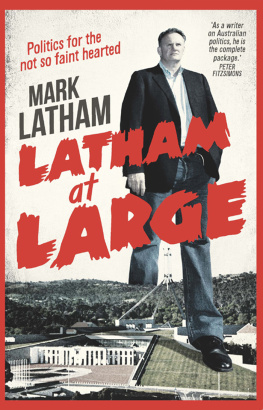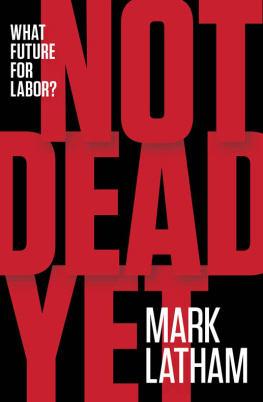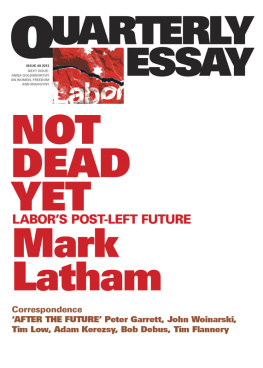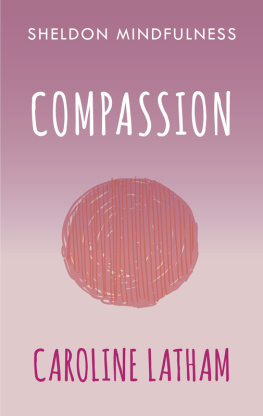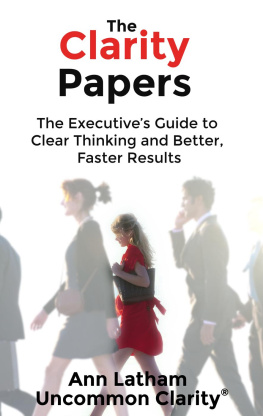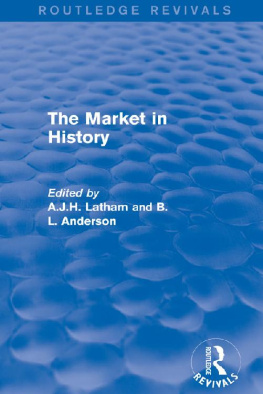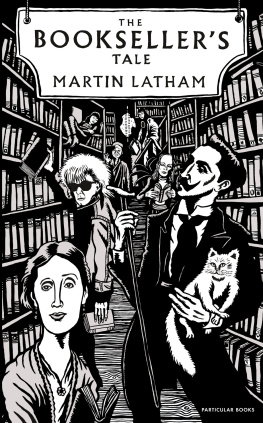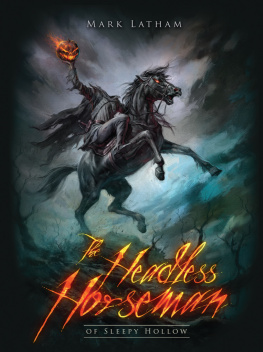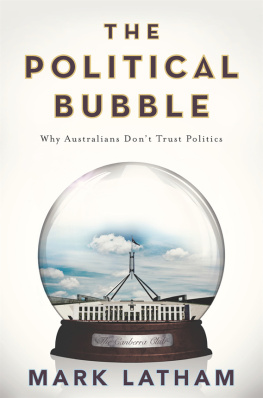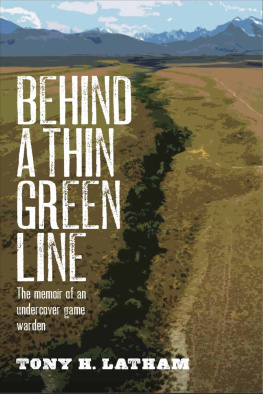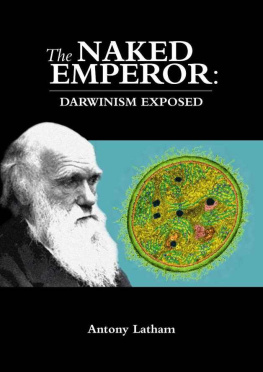MELBOURNE UNIVERSITY PRESS
An imprint of Melbourne University Publishing Limited
1115 Argyle Place South, Carlton, Victoria 3053, Australia
www.mup.com.au
First published 2015
Text Mark Latham, 2015
Design and typography Melbourne University Publishing Limited, 2015
This book is copyright. Apart from any use permitted under the Copyright Act 1968 and subsequent amendments, no part may be reproduced, stored in a retrieval system or transmitted by any means or process whatsoever without the prior written permission of the publishers.
Every attempt has been made to locate the copyright holders for material quoted in this book. Any person or organisation that may have been overlooked or misattributed may contact the publisher.
All previously published columns originally appeared in the Australian Financial Review, with the exception of the Henderson Watch columns, which (with the exception of the one in Part 9 of this book, which originally appeared in the Australian Financial Review) originally appeared on Crikey; Star chamber and Membership-based party, which originally appeared in the Sydney Morning Herald; and A crime scene, which originally appeared in The Monthly.
Copyedited by Sarina Rowell
Cover design by Design By Committee
Typeset by Megan Ellis
Printed in Australia by McPhersons Printing Group
National Library of Australia Cataloguing-in-Publication entry
Latham, Mark, 1961- author.
Latham at large/Mark Latham.
9780522867244 (paperback)
9780522867251 (ebook)
Latham, Mark, 1961
Politics and cultureAustralia.
AustraliaPolitics and government.
FOREWORD
Saying I first ran into Mark Latham in a schoolboy rugby match in 1978 doesnt quite sum it up. It was more that he ran over meagain and again and again, as a rampaging bootsnall No. 8 for Hurlstone Agricultural High School. His personal style has rarely changed since, through all of his being a backbencher, shadow minister, leader of the oppostion and now author and columnist.
While in politics, he was ever and always one for drawing strong word pictures, famously describing the Liberal Party frontbench as a conga line of suckholes, and so it was hardly surprising that his writing would attract attention from the first. And not always in a good way
A few times he has left me gobsmacked, and even outraged, as in when, in The Latham Diaries, he referred to the same Labor Party he had the honour of leading as this shit-can of a party that I sit on. And yet, in the end, it is precisely that kind of take-no-prisoners, damn-the-torpedoes-full-speed-ahead approachwhich ultimately ended his political career when the torpedoes struckthat makes his writing so compelling.
As someone who also made a transition to journalism from another spherein my case, rugbyI can attest to the fact that one of the biggest challenges you face is writing things critical of friends you once played alongside. Many who dont meet that challenge become what is known in the trade as F.W.T.sFans With Typewriters and they never last long. Never one for moving with a large coterie of friends, Mark Latham has never had that problem and offends all without fear or favour. When it comes to perceived enemies, he clearly does it with downright glee.
Ignoring Greeners Law, that one must Never pick a fight with a man who buys ink by the barrel and paper by the ton, Latham regularly attacks Rupert Murdochwho has bought more barrels of ink and tons of paper than anyone in the history of the world often as warm-ups to ripping into whichever of News Corps most powerful columnists have most got his goat this week. But to portray him merely as the attack dog of Australian journalism doesnt get remotely close to capturing why his stuff is so strong.
I refer, most particularly, to President Theodore Roosevelts iconic Man in the Arena speech at the Sorbonne in April 1910, where he famously said:
It is not the critic who counts; not the man who points out how the strong man stumbles, or where the doer of deeds could have done them better. The credit belongs to the man who is actually in the arena, whose face is marred by dust and sweat and blood; who strives valiantly; who errs, who comes short again and again and who at the worst, if he fails, at least fails while daring greatly, so that his place shall never be with those cold and timid souls who neither know victory nor defeat.
The point, of course, is that while most of us who write about politics infer that we know better than those in the arena, and imply that we could do better if only we were given the chance, the truth is we dont have the first clue as to what its truly like.
But Mark Latham does, and his writing is all the stronger for having faced exactly the same issues that he now writes of. The rest of us might throw in anecdotes to dress up our copy, recalling the time Whitlam or Hawke or Fraser did this or that; in many cases, Latham was actually there at the time.
I also admire his fine eye, how he can evoke time and place, with his piece on Dyson Heydons royal commisssion (pages 902) a case in point. Surprisingly, for one known for his vitriol, he also regularly displays his sense of humour, and I am reliably informed that the denizens of the ABC were beside themselves with high hilarity at his column (on pages 25860) suggesting how the ABC could involve most of its key critics in a new series of TV shows.
And, of course, there is his formidable intellect, and forensic ability to get to the bottom of things, as when he ruthlessly dissected the holes in the case against the Julia Gillard slush fund.
The clich of journalism is that what we write today is mere fish and chip wrappers tomorrow. Mark Lathams stuff is better than that, and worthy of a collection that, if it is too early to be called timeless, is at least timely. It captures the zeitgeist of the political day, from a unique perspectiveas Latham is less in a bunker with comrades than in a foxhole all his own.
As a politician, Latham lacked what it took to make it to the very top. As a writer on Australian politics, he is the complete package.
Peter FitzSimons
March 2015
PREFACE
Like many Sydneysiders, I grew up watching Brian Henderson read the nightly Channel Nine news. Earlier this year, I finally got to meet the great man himself.
In a moment of kindness, he said he had been following me in the media and that I had been making a great deal of sense. Then he asked about the difference between speaking as a federal frontbencher and as a retired MP. I told him my answer could be summarised in a single word: freedom.
Freedom from no longer having to parrot the party line. Freedom from the 24-hour news cycle and tyranny of gotcha journalism. Freedom to think and construct a considered argument. Freedom to be oneself.
This book, a collection of my newspaper columns, primarily from the Australian Financial Review, is the product of that freedom, both political and intellectual. I have been able to write about Australian public life from a rare perspective: with the experience of an insider, having led one of our major political parties, but also with the objectivity of a political outsider.
Normally, when people leave parliament and find a career in the media, they maintain their association with the party machinerarely deviating from the party line. Instead of enjoying their newfound independence, they remain immersed in the patronage of the parliamentary system, with an eye out for future sinecures and financial advantage.

